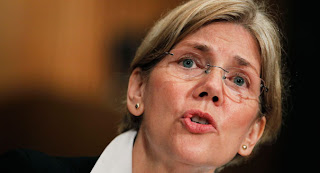--William Gibson
Sunday, July 29, 2012
Quote for the Week, July 29-August 4, 2012
--William Gibson
Friday, July 27, 2012
The Snickers Depression
Gonna be here for awhile...
"Sadly, there is no evidence that suggests controlling excessive indebtedness worked better with, than without, the Fed. The relevant point to take from this analysis is that U.S. economic conditions beginning in 2008 were caused by the same conditions that existed in these above mentioned panic years. Therefore, history suggests that over-indebtedness and its resultant slowing of economic activity supports the proposition that a prolonged move to very depressed levels of long-term government yields is probable." [Read more...]
--Van R. Hoisington & Lacy H. Hunt, PhD.,
Q2 2012
Thursday, July 26, 2012
Wednesday, July 25, 2012
GM: Not So Good for America
The "New GM" hits new lows.
[courtesy ZeroHedge]
The above graphic from ZeroHedge overlays the trend in unsold inventories at General Motors dealerships with the downward trend in the company's stock price (closing yesterday at about $19 a share). GM claims to be profitable, but investors aren't fooled. Revenues have been boosted by channel-stuffing. It remains to be seen whether the product sitting on dealer lots will actually be sold through to customers.
U.S. taxpayers should care, because they are still invested in the company. GM took down $50 billion in TARP aid during the first wave of the ongoing Global Financial Crisis. The firm entered Chapter 11 bankruptcy, crushing equity holders and extracting union concessions. When GM emerged from bankruptcy in 2009, the U.S. Treasury owned 61% of the company. An IPO in November 2010 allowed Treasury to sell 35% of the company for $13.6 billion.
When you think of it, Treasury tried to do what Mitt Romney did many times at Bain Capital: buy up a distressed company, cut costs in draconian fashion, then sell the carcass to retail investors and pension funds. But "facebooking" the investing public requires skill, and Uncle Sam doesn't have it. He locked in a partial loss by selling at the IPO price of $33 a share. Now he needs a share price on the remaining 26% of almost $54 to break even. And even that will recover neither the interest paid on offsetting Treasury debt during the interim nor the $18 billion in tax-loss carry-forwards gifted to GM.
President Barack Obama has few accomplishments to brag about during his re-election campaign this year. One has been that he SAVED the U.S. auto industry. It is true that GM regained some market share when Japanese competitors were dealing with supply-chain constraints brought on by a rather large tsunami and biblical flooding in Thailand. But the Toyotas and Hondas of the world are back on track. That turns GM back into what it was before the bail-out. A pumpkin.
Keep talking, Barry.
P.S.--As of June 30, the MainePERS investment portfolio held 139,712 shares of GM stock, worth $2.65 million today. The same shares were worth $4.6 million when first offered to the public. Reality has bitten bigtime. Maine taxpayers will have to make up the difference.
Six-month chart for GM common
The trend is not our friend.
P.P.S.--Don't look now, but investors are suing GM for false representations in the IPO prospectus. Say the plaintiffs, statements by GM that the firm was expanding production to meet increased customer demand were "false and misleading, because the increased inventories were the result of channel stuffing and were not attributable to higher demand. Indeed, at the time of these statements, dealer inventories were rising and trucks were sitting unsold on dealer lots for longer periods of time." Here's the lawsuit:
Monday, July 23, 2012
Quote for the Week, July 22-28
--Eric Hoffer
Friday, July 20, 2012
It's Almost Midnight. Do You Know Where Your Money Is?
Are you comfortable that your financial security depends on the continuing hegemony of white-collar racketeers? Consider the recent headlines. Peddling fraudulent loans, then securitizing the loans with fraudulent disclosures. Gouging delinquent borrowers. Colluding to rig bids in the municipal bond market. Strong-arming credit-rating agencies. Buying influence in Congress and in the White House. Manipulating interest rates. Front-running markets. Overcharging clients. Betting against clients. The list goes on and on.
The time is coming when the banksters will get theirs. When they do, equity holders will get crushed, making them both ashamed AND poorer.
MainePERS, smell the coffee.
"Wall Street has so many friends in Washington that meaningful reform is impossible."
--Elizabeth Warren, nominee for U.S. Senate
Washington Post op-ed
Sunday, July 15, 2012
Quote for the Week, July 15-21
--former U.S. Senator Alben Barkley (KY) coaching a freshman senator
Tuesday, July 10, 2012
Monday, July 9, 2012
Quote for the Week, July 8-14, 2012
--Stephen Hawkings
Friday, July 6, 2012
Crowding Out Business Investment
"[C]entral governments and the money center banks co-exist in a mutual admiration society where government capitalizes the banks and the banks are the primary buyers of excessive government debt. Because government doesn't create any real economic value (it regulates it and transfers it from one group to another), the domination of government assets on bank balance sheets in place of private sector assets spells real trouble for the future economic growth in the Western economies."--Robert N. Barone, Ph.D.
Dr. Barone's commentary is viewable at Minyanville.
Sunday, July 1, 2012
Quote for the Week, July 1-7, 2012
--W.C. Fields
Subscribe to:
Posts (Atom)








